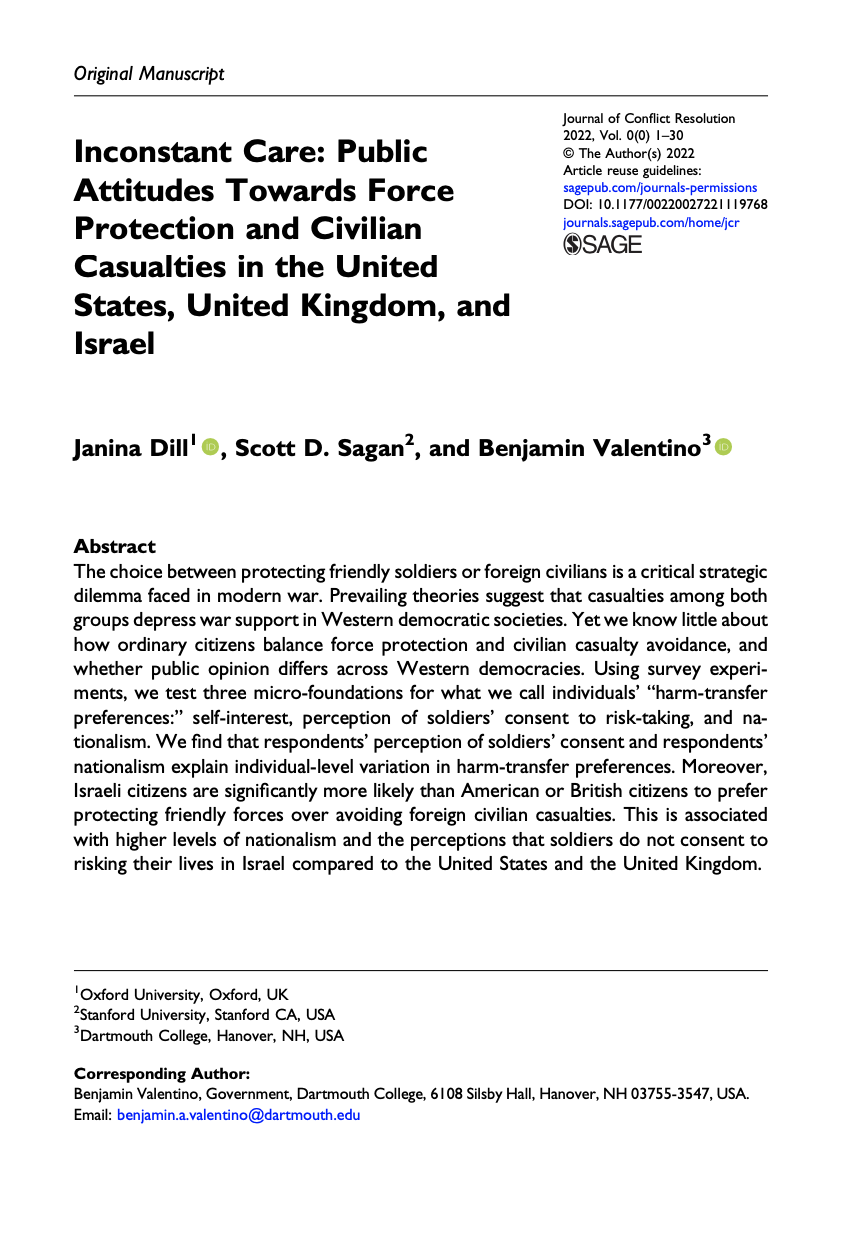ELAC Co-Director Janina Dill published a new article, Inconstant Care: Public Attitudes towards Force Protection and Civilian Casualties in the United States, United Kingdom, and Israel, in the Journal of Conflict Resolution with Scott Sagan of Stanford University and Benjamin Valentino of Dartmouth College. The article examines how ordinary citizens balance force protection and civilian casualty avoidance, and whether public opinion differs across Western democracies. The authors test three micro-foundations for what we call individuals’ “harm-transfer preferences:” self-interest, perception of soldiers’ consent to risk-taking, and nationalism. They find that respondents’ perception of soldiers’ consent and respondents’ nationalism explain individual-level variation in harm-transfer preferences. Moreover, Israeli citizens are significantly more likely than American or British citizens to prefer protecting friendly forces over avoiding foreign civilian casualties. This is associated with higher levels of nationalism and the perceptions that soldiers do not consent to risking their lives in Israel compared to the United States and the United Kingdom.
Home >
New Article: ‘Inconstant Care: Public Attitudes towards Force Protection and Civilian Casualties in the United States, United Kingdom, and Israel’

News



